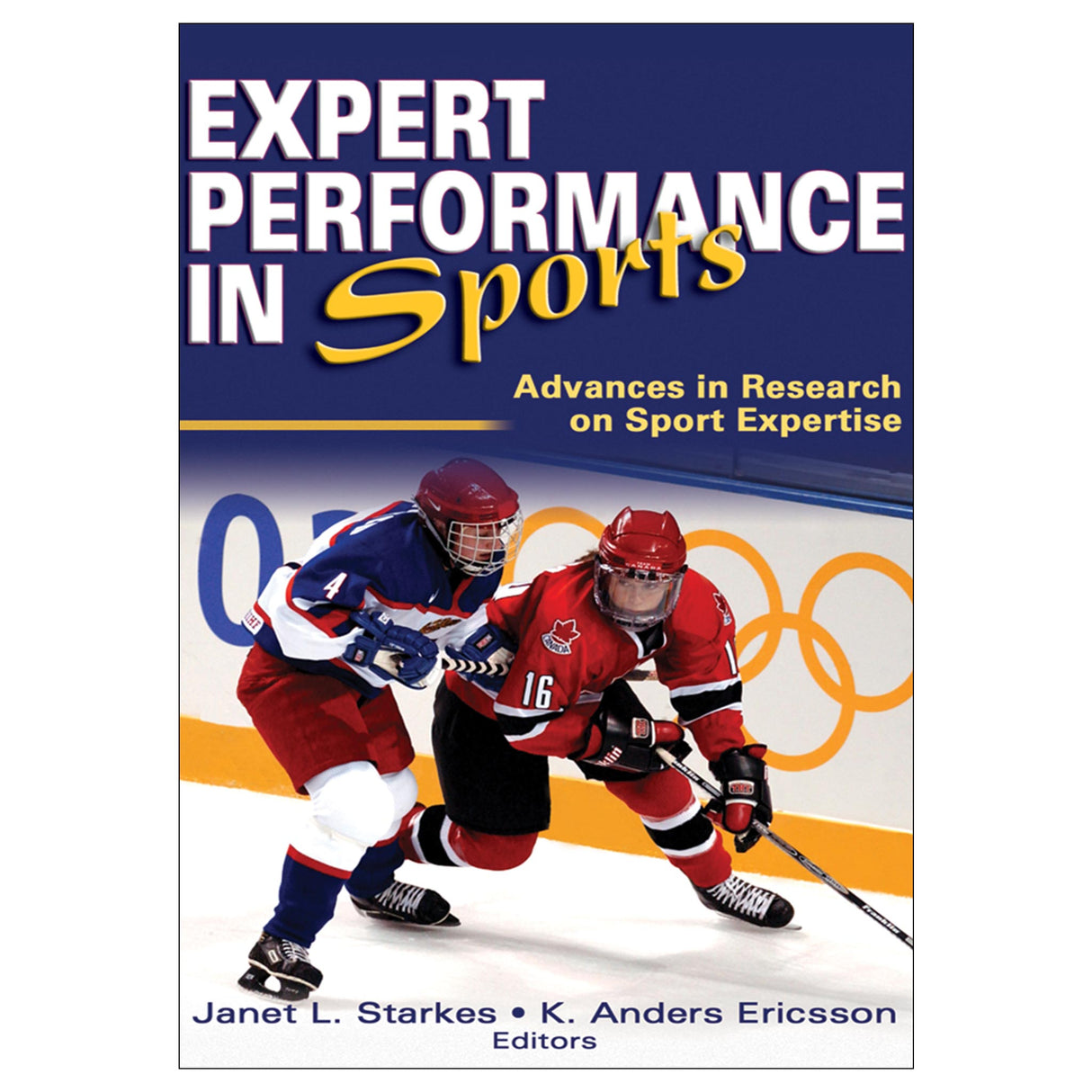Expert Performance in Sports
Advances in Research on Sport Expertise
Author: Janet Starkes, K. Anders Ericsson
$103.00 USD
Expert Performance in Sports: Advances in Research on Sport Expertise presents an overview of the critical issues facing researchers who study how athletes reach—and stay at—the pinnacle of their sports. The text will allow you to update your knowledge of sport expertise with the most current research and practical applications for the development of sport expertise in athletes, referees, and judges.
This comprehensive reference reflects both theoretical underpinnings and future directions in the understanding of sport expertise research and is the first book to look specifically at how elite athletes are developed.
Editors Janet L. Starkes and K. Anders Ericsson identify the questions typically asked in the study of sport expertise; they provide a stimulating, scientific debate that addresses the question of whether a general theory of expert performance is achievable; and they conclude with a glimpse of future directions for research on sport expertise.
This new reference answers controversial questions that arise with regard to the training of high-level performers:
-How can you potentially speed up the acquisition process?
-How easy or difficult is it for experts to retain high performance levels as they age?
-How can coaches structure practices to maximize active time and preparation for the next competition?
-What is the role of coaches and mentors who work with elite performers?
-What aspects of performance best reflect expert behaviors in a particular sport—anticipation, perceptual accuracy, decision speed, attention focus, response selection, response consistency, strategy, or others?
With Expert Performance in Sports, you not only can read about sport expertise research but also find out how athletes and coaches benefit the most. “Experts' Comments” at the end of each chapter present the opinions of two world-class experts, Therese Brisson and Nick Cipriano. These experts' opinions bridge the gap between the research presented and its practical applications. Dr. Therese Brisson's academic training is in motor behavior; she also is an Olympic gold medalist, silver medalist, and six-time world champion in ice hockey. Professor Nick Cipriano is both an academic and an international-level wrestling coach. He is a former international-level wrestler and world-renowned coach in freestyle and Greco-Roman wrestling, and he has coached both male and female athletes from the high school level to the Olympic team.
This is a must-have reference that will challenge researchers to identify both their theoretical underpinnings and future directions in their study of how the best excel at sports.
Audience
Reference for researchers, motor behaviorists, sport psychologists, elite coaches, and high-level athletes; textbook for graduate-level motor behavior, sport psychology, and coaching science courses.
Part I. Introduction
Chapter 1. The Magic and the Science of Sport Expertise: Introduction to Sport Expertise Research and This Volume
Janet L. Starkes
Part II. Where Are We and How Did We Get There?
Chapter 2. Expert Performance in Sport: Current Perspectives and Critical Issues
Christopher M. Janelle and Charles H. Hillman
Chapter 3. Development of Elite Performance and Deliberate Practice: An Update From the Perspective of the Expert Performance Approach
K. Anders Ericsson
Part III. Developing and Retaining Sport Expertise
Chapter 4. From Play to Practice: A Developmental Framework for the Acquisition of Expertise in Team Sport
Jean Cᅵtᅵ, Joseph Baker, and Bruce Abernethy
Chapter 5. A Search for Deliberate Practice: An Examination of the Practice Environments in Figure Skating and Volleyball
Janice M. Deakin and Stephen Cobley
Chapter 6. Tactics, the Neglected Attribute of Expertise: Problem Representations and Performance Skills in Tennis
Sue L. McPherson and Michael W. Kernodle
Chapter 7. Expertise in Sport Judges and Referees: Circumventing Information Processing Limitations
Diane Ste-Marie
Chapter 8. Expert Athletes: An Integrated Approach to Decision Making
Gershon Tenenbaum
Chapter 9. Perceptual Expertise: Development in Sport
A. Mark Williams and Paul Ward
Chapter 10. Retaining Expertise: What Does it Take For Older Expert Athletes to Continue to Excel?
Janet L. Starkes, Patricia L. Weir, and Bradley W. Young
Part IV. Novel Ways of Examining the Characteristics of Expertise and Related Theories
Chapter 11. Development of Expertise: The Role of Coaching, Families, and Cultural Contexts
John H. Salmela and Luiz Carlos Moraes
Chapter 12. Memory and Expertise: What Do Experienced Athletes Remember?
Sian L. Beilock, Sarah A. Wierenga, and Thomas H. Carr
Chapter 13. Expert Performance in Sport: Views From the Joint Perspectives of Ecological Psychology and Dynamical Systems Theory
Peter Beek, D. Jacobs, A. Daffertshofer, and R. Huys
Part V. The Great Debate: Is a General Theory of Expert Performance Achievable?
Chapter 14. Constraints and Issues in the Development of a General Theory of Expert Perceptual-Motor Performance: A Critique of the Deliberate Practice Framework
Bruce Abernethy, Damian Farrow, and Jason Berry
Chapter 15. How the Expert Performance Approach Differs From Traditional Approaches to Expertise in Sports: In Search of a Shared Theoretical Framework for Studying Expert Performance
K. Anders Ericsson





